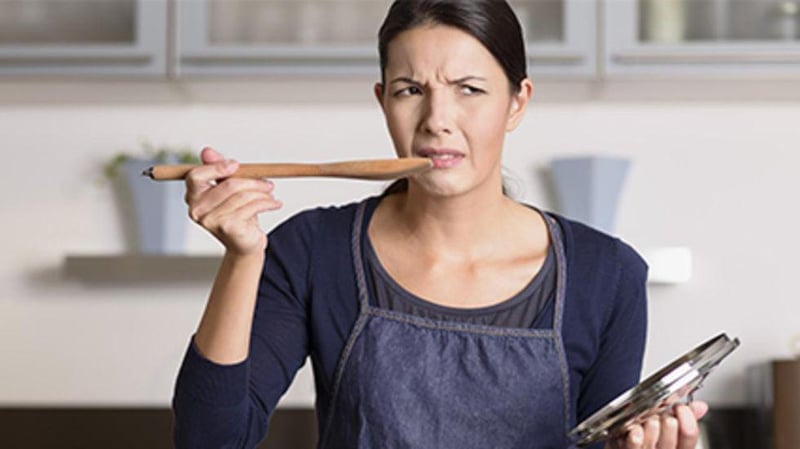Get Healthy!

- Denise Mann
- Posted November 18, 2021
As Many as 1.6 Million Americans Lost Sense of Smell Due to COVID-19
Lyss Stern lost her sense of smell when she was diagnosed with COVID-19 in March 2020, and it still hasn't returned.
Stern, 47, a New York City author and mother, has seen countless doctors and taken many types of medicine, vitamins and supplements to get her sense of smell back. She also undergoes acupuncture regularly and saw an energy healer -- all to no or very little avail.
"Yesterday, my husband asked 'what's that smell?' and I had no idea," Stern recalled. "It was eggs boiling over in the kitchen that almost caught fire."
Unfortunately, she's not alone. As many as 1.6 million people in the United States will develop olfactory dysfunction or loss of smell from COVID-19, a new study projects. Some, like Stern, develop chronic dysfunction that lasts for six months or more.
"Given the surge in acute COVID-19 infections last fall and winter and the ongoing cases, there is a pending tidal wave of new cases of chronic olfactory dysfunction that deserves our attention," said study author Dr. Jay Piccirillo, a professor of otolaryngology--head and neck surgery at Washington University School of Medicine in St. Louis. "We have to try to figure out what to do for these people, and the sad news is that we don't have any effective treatments for chronic COVID-19-related loss of smell yet."
Without the ability to smell, you can't taste food or detect harmful odors such as gas and smoke. Like Stern, many people with chronic loss of sense of smell report a poorer quality of life, and feelings of depression as well.
Exactly how COVID-19 can rob you of your ability to smell isn't fully understood yet, but many viral illnesses cause similar symptoms.
"We think that the virus attacks the supporting cells in the nose that help olfactory nerves do their job," Piccirillo said. Olfactory nerves are responsible for our sense of smell.
To get a better sense of how many people will lose their sense of smell due to COVID, the researchers culled data on new daily U.S. COVID cases, frequency of loss of smell, and rates of recovery.
Based on these numbers, they estimate that more than 700,000 -- and possibly as many as 1.6 million -- Americans will have chronic loss of smell due to COVID-19. The actual number may be even higher as the data included only state-reported positive cases, and not all COVID cases get reported.
Once supporting cells in the nose recover, smell returns for about 90% of people with COVID, Piccirillo said. Researchers still aren't sure why some people, like Stern, experience chronic loss of smell.
"People whose supporting cells get more infected and had a heavier load of the virus are more likely to have persistent loss of smell," Piccirillo said.
The findings were published Nov. 18 in JAMA Otolaryngology--Head & Neck Surgery.
Meanwhile, the phones have been ringing off the hook at the Smell & Taste Treatment and Research Foundation in Chicago due to the growing numbers of people with chronic loss of smell from COVID, said Dr. Alan Hirsch, its neurological director.
"There is no U.S. Food and Drug Administration-approved drug for smell and taste loss from COVID-19," said Hirsch, who reviewed the findings. "Instead, doctors will try medications and supplements that have shown to be effective in other virus-related smell and taste deficits."
Other causes of loss of smell include age, smoking and certain neurologic diseases such as Parkinson's or Alzheimer's, Hirsch said. These come on slowly, and many people don't notice or complain. COVID-related loss of smell comes on quickly.
People with COVID-related loss of smell are younger than those who are affected by other causes of olfactory dysfunction and will have to live with this troublesome symptom much longer as a result, he said.
"We will continue to see more cases of COVID-19-related loss of smell and as people age, this will be added on to age deficits to make the loss that much more pronounced," Hirsch said.
If it's been more than a month since you recovered from COVID-19 and you still can't smell, you should see a specialist to learn if there is more you can do to recover it, he suggested.
"Food and danger are important things to smell," said Dr. Len Horovitz, a pulmonologist at Lenox Hill Hospital in New York City, who also reviewed the study.
"You may lose interest in eating because everything tastes the same and lose weight without wanting or needing to," Horovitz said. "It's important to work with a nutritionist to make sure your body is getting all of the nutrients it needs if you can't smell."
More information
The American Academy of Otolaryngology--Head and Neck Surgery Foundation has more about smell loss related to COVID-19.
SOURCES: Lyss Stern, New York City; Jay Piccirillo, MD, professor, Department of Otolaryngology--Head and Neck Surgery, Washington University School of Medicine in St. Louis; Alan Hirsch, MD, neurological director, Smell & Taste Treatment and Research Foundation, Chicago; Len Horovitz, MD, pulmonologist, Lenox Hill Hospital, New York City; JAMA Otolaryngology--Head & Neck Surgery, Nov. 18, 2021





